- Home
- Colleen Gleason
The Clockwork Scarab s&h-1 Page 17
The Clockwork Scarab s&h-1 Read online
Page 17
Uncle Sherlock had impressed upon me from a young age that learning every streetwalk, road, alley, railway route, and business in London was imperative for him in his crime-solving capacity, and so I had taken it upon myself to study maps and become familiar with business districts and neighborhoods. I knew the schedule for every train, underground or otherwise, as well as the buses. One never knew when one might need to utilize public transportation.
Since it was still several hours before noon, she wasn’t in residence. Fortunately, I’d acquired a key and was able to gain access on my own. I had preparations to make before I attempted to attend the Society of Sekhmet meeting tonight at Witcherell’s Pawnshop.
Living in an age of great technology and scientific progress, I was skeptical of the legend of Sekhmet that the Ankh promoted, but I also knew I couldn’t fully discount it as being an excuse for some other scheme—such as to terrorize members of the peerage through their daughters or overthrow the government. After all, Miss Stoker was evidence that vampires did exist. And, as had become apparent, so did time travel—although one could argue the latter was a scientific endeavor and not that of some supernatural force.
And, much as I tended to discount the idea, it seemed that whatever the Ankh was doing with Sekhmet and its statue had caused Dylan’s leap through time.
I’d come to the museum to review the array of notes and writings I’d collected during my week of research into Sekhmet’s instruments. If three of the instruments had been located, I wanted to know as much about them as I could, as well as about the fourth.
Lilly had retrieved the cuff herself. And based on Miss Stoker’s information that a figure had been running from the museum the night of Miss Hodgeworth’s death with a long, slender item in hand, one would conclude that the second one was the scepter. That left the sistrum and the diadem.
I sat at Miss Adler’s desk and closed my eyes to review what I remembered from the Society of Sekhmet meeting, redrawing in my mind like a moving picture the Ankh’s gestures, the speech, and even the actions when she commanded that we be apprehended.
Something about the Ankh niggled in my fertile mind, something I felt I should know or recognize. Something I was missing.
A thought lodged in my brain and my eyes popped open. I stared unseeingly into the room.
“Impossible,” I said aloud.
Lady Cosgrove-Pitt had been at the ball when I returned from the excursion to the Society of Sekhmet’s lair. I’d seen her myself, speaking with another person.
Still. There was something about the Ankh that reminded me of her. Or perhaps it was the other way around. Seeing Lady Cosgrove-Pitt today at the Fauntley mansion only served to remind me of it. It was the way she tilted her head, the way she moved her gloved hand.
And then there was the fact that, apparently, Miss Hodgeworth had received an invitation to the Roses Ball. And someone—Lady Cosgrove-Pitt?—had marked a secret message on that very same invitation.
The door to Miss Adler’s office cracked open, shattering my concentration. A blond head poked around the opening.
“Mina,” said Dylan, “I’m so glad you’re here.”
“And I’m relieved to see that you’ve emerged from your exile below,” I said tartly, as a rush of warmth billowed through my middle. What was wrong with me that the sight of this young man would set me to fluttering?
“I realized you were right about what you said this morning—I can’t just stay down there forever,” he said as he came into the office and shut the door behind him.
I was acutely aware that the two of us were alone in a private room. “I’m glad to hear it. I intend to do anything I can to help send you back to your time, but until we can determine how to do that, I believe it’s in your best interest to interact with the people and life here. After all, we don’t know how long it could take.” Gad, I was babbling, and I didn’t seem able to stop myself.
He smiled, and my cheeks went warm. “I realize I’ve been a jerk, and I’m sorry. I was a little short with you this morning, and that wasn’t right.”
“Never mind that,” I said, feeling both discomfort and pleasure from the way his gaze settled on me. It was warm and genuine—not at all like the cold gray-green stare of a certain detective.
“I’m glad you’re here, because I just realized I might be able to help you. I feel like an idiot for not remembering before now. Do you know where my clothes are? My original clothes?”
“Of course.” I’d brought them with me when I bailed him out of the jail, and they were in a cupboard in this very chamber. I produced the satchel and watched as he dug through it. I couldn’t resist picking up one of the very odd rubber and leather shoes. It laced up like a corset, and the sole curved up and around the sides and front of the shoe. On the back in small letters, it said NIKE.
Of course, I knew who Nike was—the Greek goddess of victory. But I couldn’t understand why Dylan would have her name on his shoe. I hoped he wasn’t part of some sort of Society of Nike that came from the future. . . .
“Yesss!” he said, drawing out the sibilance of the last consonant in a sort of victorious sound. “I thought so.”
“What is it?”
He was looking at a pamphlet of some shiny type of paper he’d just extricated from the pocket of his trousers. Although it was crinkled and worn, it was also very colorful, with the words The British Museum printed on the front, and a picture—
I reached out and touched the paper where the image was. I’d never seen anything like it. It must have been some sort of photograph, but it looked so real, so colorful, like a flat miniature of a building that I recognized as the very one in which we were standing—but different.
Dylan unfolded the pamphlet, and I could see that it was a description of the museum that came from his time. While I wanted to snatch it away from him and examine every last detail, I refrained and looked over his shoulder while he pored through it.
Then he stabbed a blunt finger at a page. “Look at this, Mina! Don’t you think this could help?”
At last I was able to take the pamphlet from him, feeling the light, smooth, shiny texture of the paper myself. When I saw what he was pointing to, my heart gave a little flip.
The Cult of Sekhmet and the Twelfth Dynasty said the heading beneath an image of a delicate, filigreed coronet that looked very much like the drawing of Sekhmet’s diadem. Excitement coursing through my veins, I read further, still fully aware of how close I was to Dylan.
The newest exhibit in the Egyptology salon (third floor, East Wing) is a collection said to belong to Amenemhat I, the Twelfth Dynasty pharaoh who created a cult around the goddess Sekhmet. He was so devoted to her that when he became ruler and moved the capital, the shrines and worship spaces of her cult were also moved. Found in the late 19th century in a forgotten room at the museum, this golden diadem represents the intelligence attributed to the goddess.
“I’ve never heard of Amenemhat,” I said, my mind working through the implications. Time travel was a complicated concept. “His tomb must not have been discovered yet. There are many archaeologists excavating in Egypt right now, but it could be years. That means the Ankh couldn’t have found the diadem either, which means whatever she’s attempting to do with the legend of Sekhmet, she can’t do it without the diadem.”
“Wait, there’s more. I remember this! We saw the exhibit and the diadem—you know, when I was in my time. And I looked it up, because the story was so interesting. Wait. I might still have it.”
He fumbled in his pocket and pulled out the sleek telephone. “The battery’s getting lower,” he said, stabbing at the face of the device with his finger. “Damn. I’m going to have to turn it off for a while. But first . . .”
I watched in awe as he poked at it, slid his finger over the surface, and made the images change. Then all at once, there were pictures on there, moving.
Tiny people, moving. “What is that?”
“Oh, I hit the wrong app,�
� Dylan said. To my relief, he didn’t change it right away, and I looked down at the tiny moving pictures, with sound coming from them.
“What is that?” I asked again. They were dolls or people, maybe even mechanical devices, for they had oddly shaped heads—or else wore hats—and all wore the same clothing. They had long cane-like sticks and they were moving around very fast, hitting a small black object on a white floor.
“That’s hockey, and that’s me,” he added, pointing to one of the characters moving around. “I play hockey. Back home. It’s a sport, like . . . um . . . cricket?”
“Brilliant,” I murmured, still watching the miniscule people. They crashed into each other, tumbling to the ground, and even began to hit each other. But the way they moved that tiny black disk around . . . it was almost magical.
“This is amazing,” I said when he touched the surface again and the pictures went away, to be replaced by the rows of little square images.
“It can do a lot of other things, but it needs electricity. You know, that awful contraband. Electricity.” He looked at me from the side, very close, his eyes twinkling as if it were some private joke between us.
My cheeks heated, and I found myself smiling back as my insides filled with butterflies. My organized thoughts scattered.
He returned his attention to the telephone. “I had looked up the information and I found a description . . . here it is.” He slid his finger and stabbed at the glass. “It’s still pulled up on my browser,” he explained in what sounded like a foreign language.
“They found the diadem, packed away in the storage rooms of the British Museum. It’s already here. The article says ‘The diadem attributed to Sekhmet was found in a long-forgotten crate in the Archaic Room of the museum. Tarnished and bent, its delicate gold workmanship was nearly ignored because it had been thrown in a box with pieces of ruined statues and pottery. The diadem narrowly escaped being destroyed.’ ”
“It could still be here. The task for which Miss Adler was engaged by the museum is to go through and catalog all of the crates and shipments that flooded the country during the first part of the century. Sarcophagi and statues and countless artifacts were packaged up, shipped here, and then forgotten.”
Dylan nodded. “I remember that. It was considered a terrible robbery of the Egyptian people, as well as becoming a lucrative trade for Egyptian grave robbers, who stole from their own country and sold antiquities to the Europeans. There was a show on the History Chann—uh, anyway. So that means it’s still here.”
“Or the Ankh could already have it.”
We looked at each other, and for a moment, I couldn’t breathe. He was so close to me, and our faces were almost at the same level, and he was so handsome, so fascinating . . .
Then I thought of my prominent nose and my too-wide mouth and how tall and clumsy I was, and the warmth that had begun to bubble hopefully inside me eased. I was an odd duckling, an awkward, plain-looking girl who didn’t know when to stop lecturing.
A handsome, unique young man like Dylan would never—
“Mina,” he said. His eyes hadn’t left my gaze, and I realized his fingers were brushing against mine. “I think you’re really cool.”
I wasn’t sure what he meant by “cool”—was that good, bad, or literal? My brain seemed to freeze, being this close to him.
Although my brain was frozen (and possibly whatever other “cool” parts of me he was referring to), my cheeks were not. They felt as if they were on fire.
Before I could say anything, there was a knock on the door, and then it flew open. I was startled and leapt guiltily away from Dylan, lest someone accuse us of anything improper.
“Did you speak to Lilly Corteville?” demanded Miss Stoker as she burst in with a swirl of pale blue skirts and a flower-laden bonnet. She brandished a white parasol.
“Yes, of course I did,” I replied, refusing to look at Dylan. Now not only were my cheeks hot, but my forehead and neck as well. Had I been gawking at him like one of those silly girls I disliked? “I learned quite a bit.”
As I willed my face to return to its normal shade, I divulged the results of my interview of Lilly, and then showed Miss Stoker the pamphlet Dylan had saved.
“Right, then. We must find the diadem before the Ankh does.” Miss Stoker suggested the obvious.
“That’s one course of action,” I said crisply. “But for all we know, she—or he—could already have acquired it. Lilly Corteville didn’t say which of the instruments is still missing.” I decided to keep my suspicions of Lady Cosgrove-Pitt to myself for the time being. “I’ve already planned to pay a visit to Witcherell’s this evening. At nine o’clock.”
“I’ll be going too,” said Miss Stoker.
I gritted my teeth. I didn’t want her to disrupt things again, and I saw no reason for two of us to attempt to gain entrance to the society’s meeting place. One would be difficult enough.
“You need me to protect you,” she added. My jaw was in pain as I fought to keep it closed. Instead, I settled for shooting her a dark glance.
“By the way, I’m Dylan,” said our companion, breaking into the moment.
“It’s a pleasure to meet you,” she said, giving him a warm smile that set my teeth on edge. “Miss Holmes has told me all about your situation. I’m Evaline Stoker.”
He looked at her, puzzlement and then comprehension crossing his face. “Stoker? As in . . . Bram Stoker? Didn’t he write Dracula?”
Her brown eyes widened. “He is writing a book. About a vampire. Do you mean to say you know the book? From your time?”
“Oh, um . . . crap.” Dylan stopped and looked at me. “I’m not sure if I should say anything about the future. It could really mess things up. Like in Back to the Future, this movie that—oh.” He stopped again and huffed out a big puff of air that ruffled the long hair over his forehead. “Never mind. I shouldn’t say anything.”
“I agree, you probably shouldn’t,” I said, ridiculously pleased that he’d turned to me, that it was I he seemed to want an opinion from, instead of the pretty, vivacious Miss Stoker.
“Whatever the two of you are going to do,” Dylan said, “I’m going to see if I can find the crate. At least then we’ll know if the Ankh has already found the diadem.”
“Excellent plan,” I said. “If the Ankh hasn’t found it, perhaps we can lure her into the museum and capture her that way. We can set a trap.”
“Like Scooby-Doo,” Dylan said with a grin that all of a sudden faded.
I turned to Miss Stoker. “In regards to our proposed visit to Witcherell’s, you do realize that we cannot be noticed, and we cannot be recognized?” I said, in case she had any ideas about announcing her presence as she’d done the last time. “We’re going to have to go in disguise.”
“Right,” she said. “And I know just the place to get whatever we need.”
Miss Stoker
Of Crushed Cauldrons, Critics, and Characters
The public entrance to the Lyceum Theatre was at ground level on Wellington-street, but I brought Miss Holmes through the back entrance used by the actors and other personnel. I often visited Bram and knew how to navigate the backstage to his office.
It was just past noon, and the wings, prop closets, costume wardrobes, and dressing rooms were deserted. The actors and stagehands wouldn’t arrive for several hours, having been up until well past two o’clock the night before. It was no wonder this was the quietest part of the day in the theater. Like vampire hunters and pickpockets, actors and actresses carried on their festivities until dawn.
My brother’s voice boomed from his office as we approached. He was talking to someone, and he sounded bothered. I was used to Bram’s moods, especially when he was working on his book. Miss Holmes looked at me in question, but I knocked on Bram’s door.
The talking stopped, and the door swung open. “Evaline.”
“I hope we aren’t interrupting,” I said, glancing around him into the office.
“No, no, come in,” he said, gesturing us into the chamber.
I could feel my companion’s attention sweep over him. The only resemblance between my brother and me is our thick, curling dark hair. I’m petite and elegant, and he’s rather stocky. He has a full beard and a mustache with an auburn tint in the growth nearest the lips.
I walked into the office and wasn’t surprised to find it empty.
“I thought I heard you talking to someone.” Props and papers were everywhere, along with costumes, a sword, and a crushed papier-mâché cauldron. The company was currently performing Macbeth.
“I was working on my book,” he said, gesturing to a large typing machine. A paper protruded from its roll and was filled with words. Crumpled papers littered his desk and the floor. “You likely heard me cursing at the blasted thing. Writing a book is blooming difficult, even when ye know the topic of vampires and vampire hunters.” His hair was a mess, as if he’d been pulling on it.
He noticed Miss Holmes for the first time, and I introduced her.
“Sherlock Holmes’s niece, are you? You’re being the intelligent one, then, aye? You don’t go taking yourself off and doing dangerous things like my sister here, do you? Trying to find vampires, hunting them with supernatural strength,” he muttered, glancing at the typing machine again. His brows drew together. “That’s after being my biggest problem with this book. No one would believe it, Evvie. The critics would be laughing for weeks—a story in which a woman kills the evil, cunning vampire. It’s not possible for a woman to outsmart and kill the powerful and intelligent Count Dracula.” He looked at Miss Holmes and added, “It’s the character of which I speak, of course.”
“Of course.”
“But you know it is possible,” I reminded him. Why did he always have to bring this up?
“If you ever actually kill a vampire, I might be believing it. But it’s no more than a legend anymore, Evvie. You’ve got the skills, but you’ve never actually staked an UnDead.”

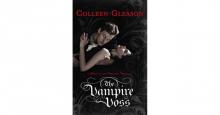 The Vampire Voss
The Vampire Voss Lavender Vows
Lavender Vows Sanctuary of Roses
Sanctuary of Roses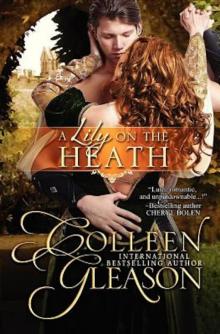 A Lily on the Heath
A Lily on the Heath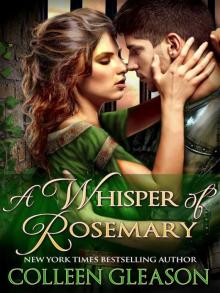 A Whisper Of Rosemary
A Whisper Of Rosemary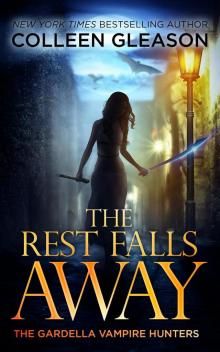 The Rest Falls Away
The Rest Falls Away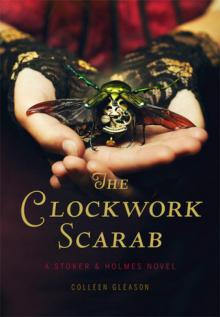 The Clockwork Scarab
The Clockwork Scarab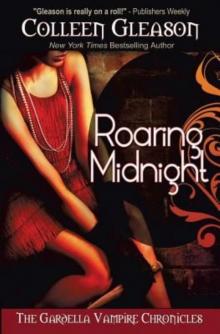 Roaring Midnight
Roaring Midnight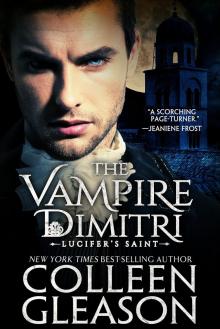 The Vampire Dimitri
The Vampire Dimitri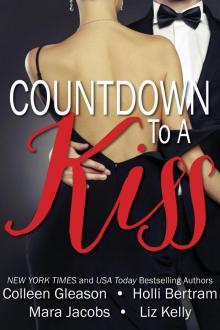 Countdown To A Kiss A New Years Eve Anthology
Countdown To A Kiss A New Years Eve Anthology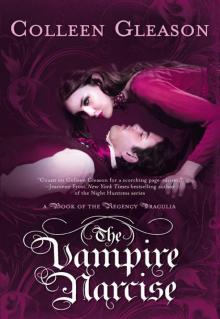 The Vampire Narcise
The Vampire Narcise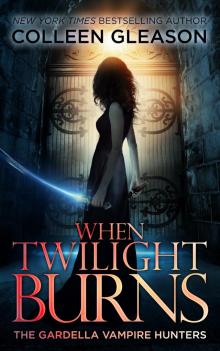 When Twilight Burns
When Twilight Burns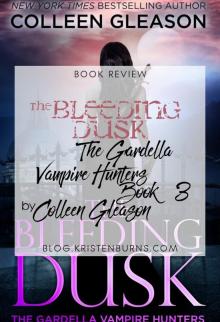 The Bleeding Dusk
The Bleeding Dusk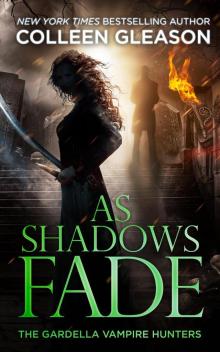 As Shadows Fade
As Shadows Fade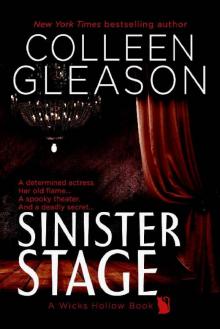 Sinister Stage: A Ghost Story Romance and Mystery (Wicks Hollow Book 5)
Sinister Stage: A Ghost Story Romance and Mystery (Wicks Hollow Book 5)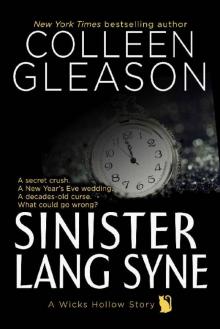 Sinister Lang Syne: A Short Holiday Novel (Wicks Hollow)
Sinister Lang Syne: A Short Holiday Novel (Wicks Hollow) Sinister Sanctuary
Sinister Sanctuary Night Beckons
Night Beckons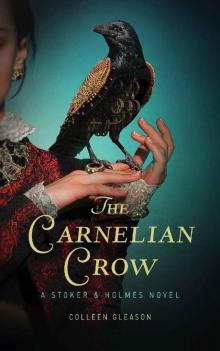 The Carnelian Crow: A Stoker & Holmes Book (Stoker and Holmes 4)
The Carnelian Crow: A Stoker & Holmes Book (Stoker and Holmes 4)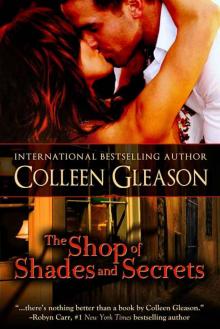 The Shop of Shades and Secrets (Modern Gothic Romance 1)
The Shop of Shades and Secrets (Modern Gothic Romance 1) Lavender Vows tmhg-1
Lavender Vows tmhg-1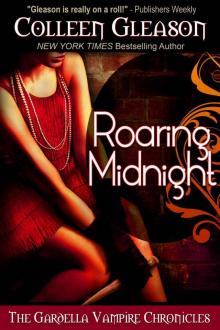 Roaring Midnight (The Gardella Vampire Chronicles | Macey #1)
Roaring Midnight (The Gardella Vampire Chronicles | Macey #1) Lavender Vows (The Medieval Herb Garden Series)
Lavender Vows (The Medieval Herb Garden Series) Dark Secrets: A Paranormal Romance Anthology
Dark Secrets: A Paranormal Romance Anthology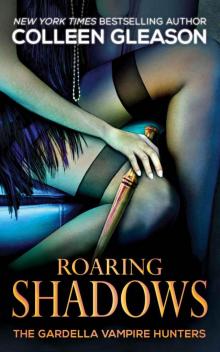 Roaring Shadows
Roaring Shadows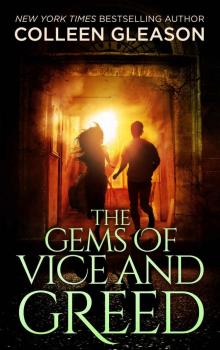 The Gems of Vice and Greed (Contemporary Gothic Romance Book 3)
The Gems of Vice and Greed (Contemporary Gothic Romance Book 3)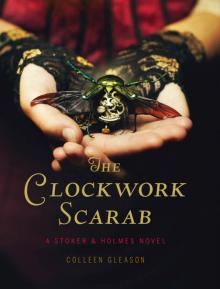 The Clockwork Scarab s&h-1
The Clockwork Scarab s&h-1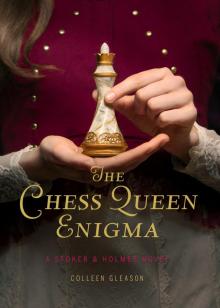 The Chess Queen Enigma
The Chess Queen Enigma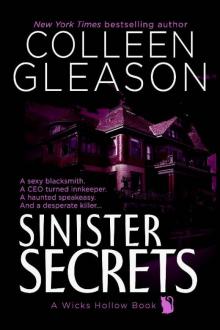 Sinister Secrets
Sinister Secrets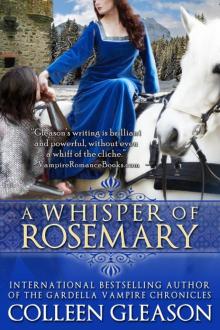 A Whisper of Rosemary (The Medieval Herb Garden Series)
A Whisper of Rosemary (The Medieval Herb Garden Series) Dark and Damaged: Eight Tortured Heroes of Paranormal Romance: Paranormal Romance Boxed Set
Dark and Damaged: Eight Tortured Heroes of Paranormal Romance: Paranormal Romance Boxed Set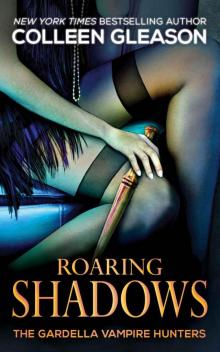 Roaring Shadows: Macey Book 2 (The Gardella Vampire Hunters 8)
Roaring Shadows: Macey Book 2 (The Gardella Vampire Hunters 8)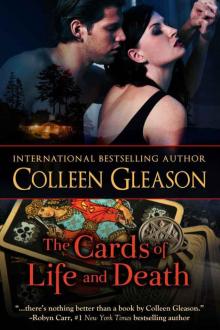 The Cards of Life and Death (Modern Gothic Romance 2)
The Cards of Life and Death (Modern Gothic Romance 2)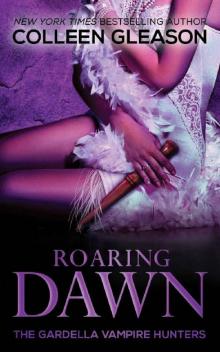 Roaring Dawn: Macey Book 3 (The Gardella Vampire Hunters 10)
Roaring Dawn: Macey Book 3 (The Gardella Vampire Hunters 10)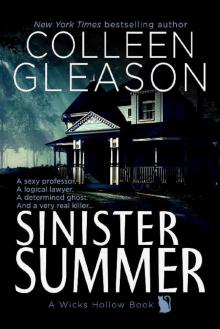 Sinister Summer
Sinister Summer Sinister Sanctuary: A Ghost Story Romance & Mystery (Wicks Hollow Book 4)
Sinister Sanctuary: A Ghost Story Romance & Mystery (Wicks Hollow Book 4)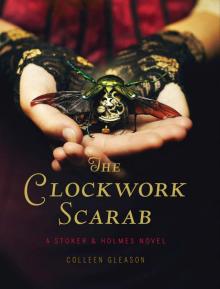 The Clockwork Scarab: A Stoker & Holmes Novel
The Clockwork Scarab: A Stoker & Holmes Novel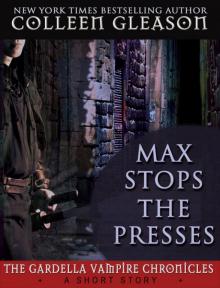 Max Stops the Presses
Max Stops the Presses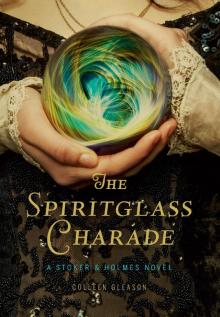 The Spiritglass Charade
The Spiritglass Charade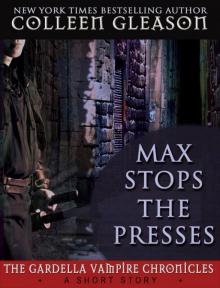 Max Stops the Presses: A Gardella Vampire Chronicles Short Story
Max Stops the Presses: A Gardella Vampire Chronicles Short Story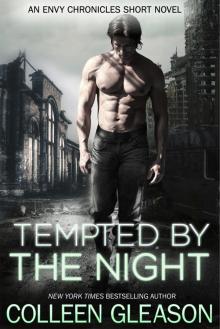 Tempted by the Night
Tempted by the Night